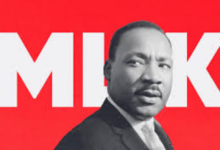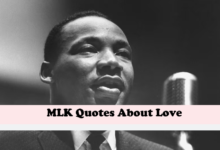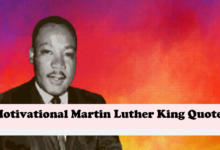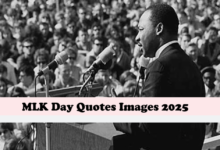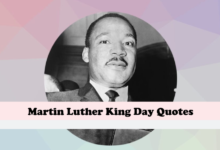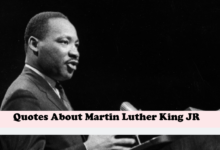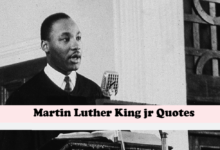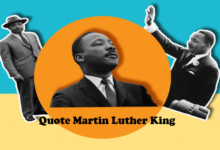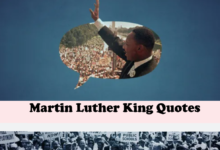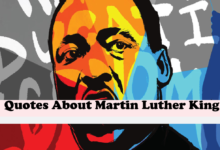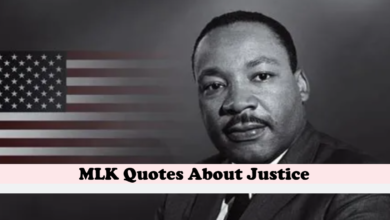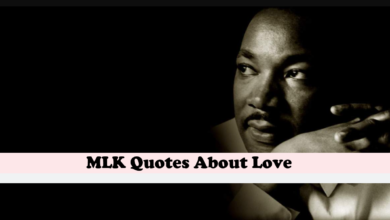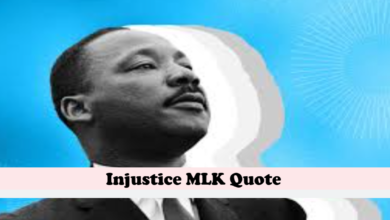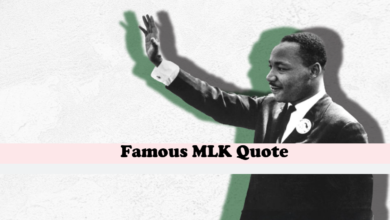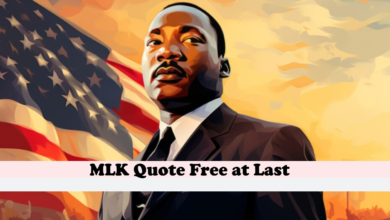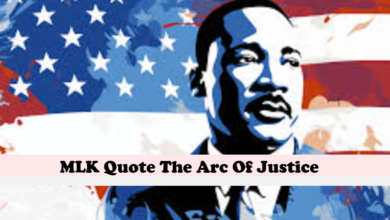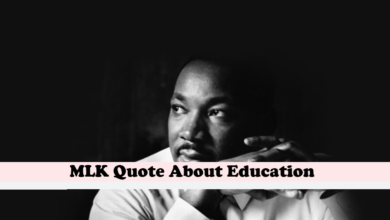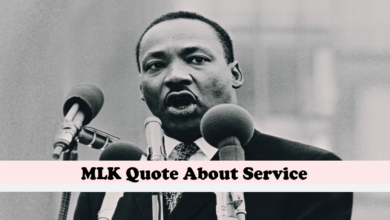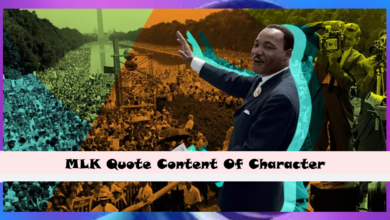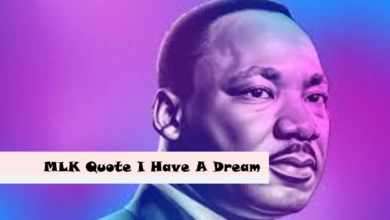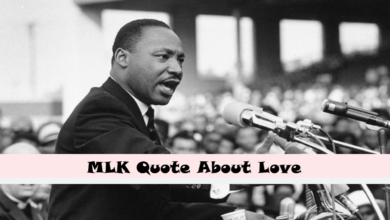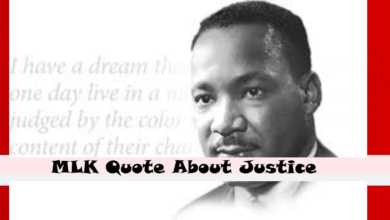MLK I Have a Dream Quote
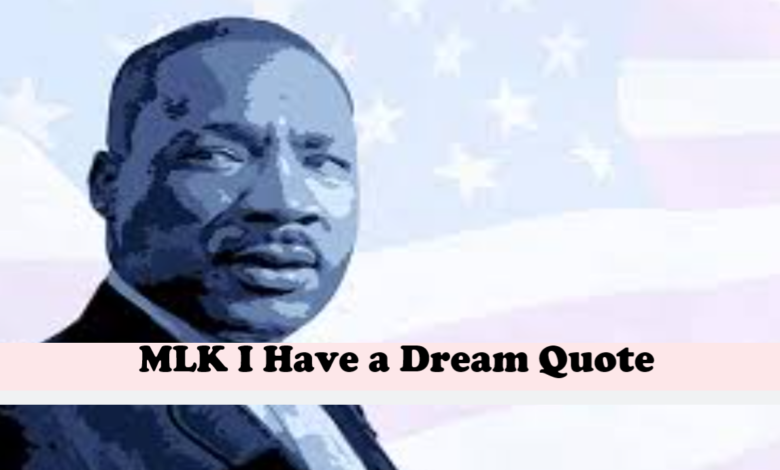
One of the most iconic and impactful moments in American history occurred on August 28, 1963, when Dr. Martin Luther King Jr. delivered his “I Have a Dream” speech during the historic March on Washington for Jobs and Freedom. The words King spoke that day have transcended time and continue to resonate with people around the world. Among the most famous and powerful parts of that speech is the line: “I have a dream that one day this nation will rise up and live out the true meaning of its creed: ‘We hold these truths to be self-evident, that all men are created equal.'” This quote is not just a reflection of King’s vision for the future, but it also serves as a guiding light for generations who continue the struggle for equality and justice.
In this blog post, we will dive deep into the meaning of this quote, explore the significance it holds in today’s world, and reflect on how Dr. King’s dream still calls us to action in the fight for civil rights and social justice.
MLK I Have a Dream Quote
Before diving into the specifics of the quote itself, it’s important to understand the context in which it was delivered. The “I Have a Dream” speech was a pivotal moment in the Civil Rights Movement. Over 250,000 people, both black and white, gathered in Washington, D.C., to demand justice, equality, and better economic opportunities for African Americans. The speech was delivered at the steps of the Lincoln Memorial, just steps away from the monument dedicated to President Abraham Lincoln, who had signed the Emancipation Proclamation, freeing enslaved Black Americans.
“Darkness cannot drive out darkness: only light can do that. Hate cannot drive out hate: only love can do that.”
― Martin Luther King Jr.,
“I have decided to stick to love…Hate is too great a burden to bear.”
― Martin Luther King Jr.
“I have decided to stick to love…Hate is too great a burden to bear.”
― Martin Luther King Jr.
“Our lives begin to end the day we become silent about things that matter.”
― Martin Luther King Jr.
“In the end, we will remember not the words of our enemies, but the silence of our friends.”
― Martin Luther King Jr.
Faith is taking the first step even when you can’t see the whole staircase.”
― Martin Luther King Jr.
“If you can’t fly then run, if you can’t run then walk, if you can’t walk then crawl, but whatever you do you have to keep moving forward.”
― Martin Luther King Jr.
“But I know, somehow, that only when it is dark enough can you see the stars.”
― Martin Luther King, Jr.
“Let no man pull you so low as to hate him.”
― Martin Luther King Jr., A Knock at Midnight: Inspiration from the Great Sermons of Reverend Martin Luther King, Jr.
“There comes a time when one must take a position that is neither safe, nor politic, nor popular, but he must take it because conscience tells him it is right.”
― Martin Luther King Jr., A Testament of Hope: The Essential Writings and Speeches
“Nothing in the world is more dangerous than sincere ignorance and conscientious stupidity.”
― Martin Luther King Jr.
“The ultimate measure of a man is not where he stands in moments of comfort and convenience, but where he stands at times of challenge and controversy.”
― Martin Luther King Jr.
“Intelligence plus character-that is the goal of true education.”
― Martin Luther King Jr.
“Everybody can be great…because anybody can serve. You don’t have to have a college degree to serve. You don’t have to make your subject and verb agree to serve. You only need a heart full of grace. A soul generated by love.”
― Martin Luther King Jr.
“No one really knows why they are alive until they know what they’d die for.”
― Martin Luther King Jr.
“We must come to see that the end we seek is a society at peace with itself, a society that can live with its conscience.”
― Martin Luther King Jr.
“Injustice anywhere is a threat to justice everywhere.”
― Martin Luther King Jr.
“A man who won’t die for something is not fit to live.”
― Martin Luther King Jr., The Autobiography of Martin Luther King, Jr.
“Forgiveness is not an occasional act, it is a constant attitude.”
― Martin Luther King Jr.
“If a man is called to be a street sweeper, he should sweep streets even as a Michaelangelo painted, or Beethoven composed music or Shakespeare wrote poetry. He should sweep streets so well that all the hosts of heaven and earth will pause to say, ‘Here lived a great street sweeper who did his job well.”
― Martin Luther King Jr.
“We must accept finite disappointment, but never lose infinite hope.”
― Martin Luther King Jr.
“Those who are not looking for happiness are the most likely to find it, because those who are searching forget that the surest way to be happy is to seek happiness for others.”
― Martin Luther King Jr.
“I have a dream that my four little children will one day live in a nation where they will not be judged by the color of their skin but by the content of their character.”
― Martin Luther King Jr.
“Never forget that everything Hitler did in Germany was legal.”
― Martin Luther King Jr.
“We must live together as brothers or perish together as fools.”
― Martin Luther King Jr.
“Science investigates; religion interprets. Science gives man knowledge, which is power; religion gives man wisdom, which is control. Science deals mainly with facts; religion deals mainly with values. The two are not rivals.”
― Martin Luther King, Jr
King’s speech was not just a call for equality—it was a powerful critique of the status quo. King called out the injustices faced by African Americans and highlighted the stark contrast between the American ideals of freedom and equality and the reality of segregation and discrimination that Black people faced in their everyday lives.
The “I Have a Dream” quote, in particular, is a vivid illustration of King’s deep belief in the possibility of a future where racial harmony and justice were the foundation of American society.
MLK I Have a Dream Quote
“I have a dream” encapsulates King’s unwavering optimism and his unyielding belief that change was not only necessary but possible. The statement is a declaration of hope, grounded in the values of liberty, equality, and justice. By quoting the Declaration of Independence—”We hold these truths to be self-evident, that all men are created equal”—King reminded the nation that its very founding principles were inherently in conflict with the systemic racism and segregation that defined American society at the time.
The use of this powerful quote from the Declaration of Independence is a bold statement. It challenges America to live up to its promises. It serves as a reminder that the ideals upon which the country was built—freedom, equality, and justice—have yet to be fully realized for all people, particularly Black Americans. King’s “dream” was not a passive vision, but an active call to make those ideals a reality for everyone.
The Power of the “I Have a Dream” Quote Today
In 2025, over six decades since King delivered his speech, the words “I have a dream” still hold tremendous power. They evoke a sense of possibility and urgency—urging us to continue the work that King started. Although significant progress has been made since the 1960s, racial inequality remains a persistent problem in America and around the world. Discrimination, voter suppression, police brutality, and economic disparities continue to affect marginalized communities.
Dr. King’s dream was not just for a time of racial equality, but for a nation that lives up to its own promises. In the context of today’s challenges, King’s words remind us that the struggle for justice and equality is ongoing and requires continuous effort. The dream is not just about ending racial segregation but also about dismantling all forms of systemic oppression, including economic inequality, gender discrimination, and the denial of civil liberties to marginalized groups.
The phrase “I have a dream” is also a call to action. While Dr. King’s dream was filled with hope, it was also rooted in the reality of hard work and perseverance. We can no longer wait for change to come on its own—just as King did during the Civil Rights Movement, we must take direct action through protest, policy advocacy, and community-building to bring about the social change that is needed.
What Does the Dream Look Like Today?
As we reflect on Dr. King’s words today, it is vital to ask: What does the “dream” look like now, in 2025? The dream that King spoke of is a vision of a world where people are judged not by the color of their skin but by the content of their character. In the decades since the 1963 March on Washington, the world has seen important victories, such as the Civil Rights Act of 1964, the Voting Rights Act of 1965, and the election of Barack Obama as the first Black president of the United States. These milestones demonstrate that progress is possible.
However, we cannot ignore the fact that racial inequality persists in many aspects of life. King’s dream was not just about political or legal victories—it was about the deep-seated societal transformation that must occur for true racial harmony to take root. Today, that dream looks like justice reform, economic equality, equal access to education, healthcare, and housing, and the dismantling of structures that perpetuate inequality.
Dr. King’s vision for a better future serves as both a beacon of hope and a reminder that the work is far from over. The dream remains as relevant today as it was in 1963. The pursuit of racial equality, justice, and love is a journey that requires the dedication of each and every person.
The Legacy of the “I Have a Dream” Quote
Dr. King’s “I Have a Dream” speech is not just a moment in history; it is a living, breathing testament to the resilience and power of the human spirit. His words transcend time and continue to inspire generations of activists, leaders, and everyday individuals committed to making the world a better place.
In 2025, as we continue to face challenges related to race, justice, and equality, we must hold on to the vision that King laid out for us. The dream is not just about what has been achieved but about the work still to be done. Dr. King’s words challenge us to be better, to work harder, and to remain steadfast in our pursuit of equality for all people.
In every protest, in every effort to create change, in every conversation about racial justice, we can hear King’s voice echoing, reminding us of the enduring power of his dream: a world where all people are truly equal, a world where justice and love triumph over hatred and division.
The “I Have a Dream” quote remains a touchstone of the Civil Rights Movement and a timeless call to action. It serves as a reminder of the enduring struggle for racial equality and the need to continue pushing for a society where all individuals, regardless of race, can live with dignity, freedom, and justice. Dr. King’s dream is a vision that we must carry forward in 2025 and beyond, working together to make that dream a reality for all.
